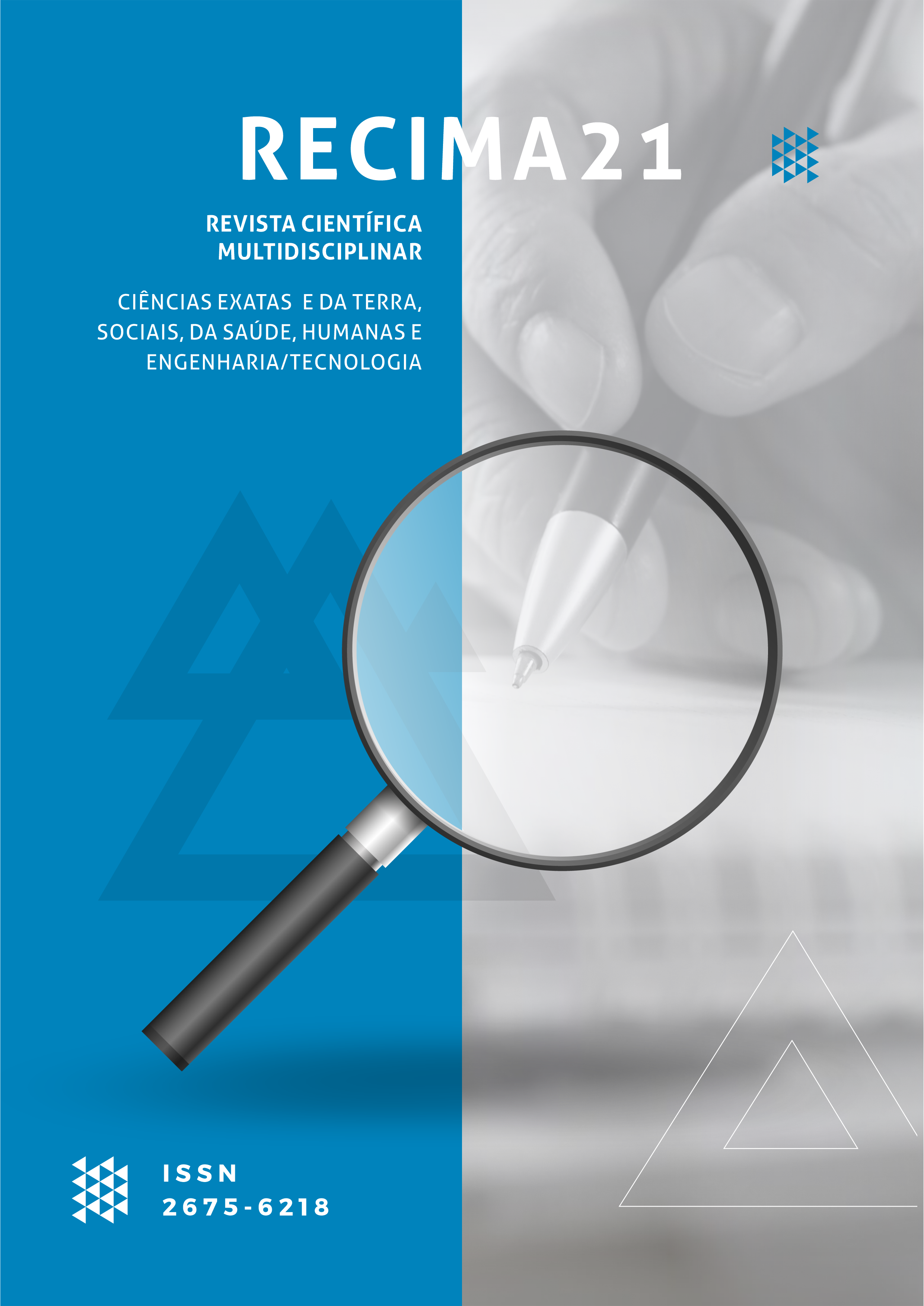THE DEVELOPMENT OF SEMINARS AS FACILITATORS IN THE TEACHING AND LEARNING PROCESS
DOI:
https://doi.org/10.47820/recima21.v3i12.2499Keywords:
Collaborative Learning, Formative Assessment, Education, Teacher Mediator, SeminarsAbstract
To structure the production of seminars with the classes of the Courses of Administration and Analysis and Development of Systems, the respective academic periods begin with an evaluation proposal considering the main needs and challenges identified. With the main objective of analyzing the results of the application of seminars as a facilitator in the teaching and learning process, the concepts of Technological Innovations for Industry 4.0, Software Engineering and Quality, The Use of Technology Dressed in Organizations, Human Interaction Computer and Society, were introduced at different times and classes. and the Internet of Things and their Applications in the Business World. An exploratory and explanatory research was used, in order to verify the ideas and thoughts, thus providing greater familiarity with the problem, to provide clarification scans on the subject investigated, thus understanding the causes and effects. The main results indicate a broad participation of students during the years 2020, 2021 and 2022 with seven papers approved and presented at the beginning of the project, in 2020, fifteen productions in 2021 and sixteen presentations in 2022. From the results obtained and with the critical debates that occurred during the construction of the panels, a potential stimulator was found for research and new constructionduring classes.
Downloads
References
BRASIL. Educação Profissional e Tecnológica (EPT). Ministério da Educação. 2020. disponível em: https://www.gov.br/mec/pt-br/acesso-a-informacao/institucional/secretarias/secretaria-de-educacao-profissional/educacao-profissional-e-tecnologica-ept. Acesso em 16 de agosto de 2022.
CASTRO, S. S.; SILVA, D. S.; RODRIGUES, M. S. A Importância da Avaliação Formativa para a Aprendizagem. Anais do Congresso Nacional Universidade, EAD e Software Livre. 2021. Disponível em: http://www.periodicos.letras.ufmg.br/index.php/ueadsl/article/view/18180. Acesso em: 28 de novembro de 2022.
CUNHA, A. K. .; BOZZO, A. V. .; SILVA, A. V. L. da . O uso do seminário como facilitador no processo de ensino e aprendizagem de linguagens computacionais. Ensino em Re-Vista, [S. l.], v. 28, n. Contínua, p. e045, 2021. DOI: 10.14393/ER-v28a2021-45. Disponível em: https://seer.ufu.br/index.php/emrevista/article/view/63651. Acesso em: 1 dez. 2022.
DA SILVA FONSECA, E. Educação 5.0 – O conectivismo, a revolução digital e o ensino a distância. Contribuições para o ensino híbrido. RECIMA21 - Revista Científica Multidisciplinar - ISSN 2675-6218, [S. l.], v. 2, n. 4, p. e24197, 2021. DOI: 10.47820/recima21.v2i4.197. Disponível em: https://recima21.com.br/index.php/recima21/article/view/197. Acesso em: 24 nov. 2022.
DINIZ, Y. Conheça 5 instrumentos de avaliação formativa. Imaginie Educação. 2020. Disponível em: https://educacao.imaginie.com.br/instrumentos-de-avaliacao-formativa/. Acesso em 04 de outubro de 2022.
FERREIRA, Fernanda Mendes; BRANDALISE, Mary Ângela Teixeira. Avaliação formativa e o pluralismo metodológico no Ensino de Ciências. Anais do XIII Encontro Nacional de Pesquisa em Educação em Ciências. 2021. Disponível em: https://www.editorarealize.com.br/index.php/artigo/visualizar/76460. Acesso em: 12 de agosto de 2022.
FONSECA, E. S. Seminários. Professor Enir. 2022. Disponível em: https://enir.pro.br/course/7/about. Data de acesso: 15 de setembro de 2022.
FONSECA, E. da S.; VERNI, DES. Indústria 4.0: os impactos, desafios e perspectivas para o administrador. Investigação, Sociedade e Desenvolvimento, [S. l.], v. 9, n. 10, pág. e2579108451, 2020. DOI: 10.33448/rsd-v9i10.8451. Disponível em: https://rsdjournal.org/index.php/rsd/article/view/8451. Acesso em: 24 nov. 2022.
GIL, C. A. Como Elaborar Projetos de Pesquisa, 6ª edição. São Paulo, Atlas, 2017.
PRODANOV, C. C.; FREITAS, E. C. Metodologia do trabalho científico: métodos e técnicas da pesquisa e do trabalho acadêmico. 2013. ISBN: 978-85-7717-158-3. Disponível em: Disponível em: https://www.feevale.br/institucional/editora-feevale/metodologia-do-trabalho-cientifico---2-edicao. Acesso em: 17 de outubro de 2022.
SANTOS, L. À Conversa com... Os desafios da avaliação e a inovação curricular. ResearchGate. 2020. Disponível em: https://www.researchgate.net/publication/339940178_A_Conversa_com_Os_desafios_da_avaliacao_e_a_inovacao_curricular. Acesso em 15 de setembro de 2022.
Downloads
Published
Issue
Section
Categories
License
Copyright (c) 2022 RECIMA21 - Revista Científica Multidisciplinar - ISSN 2675-6218

This work is licensed under a Creative Commons Attribution 4.0 International License.
Os direitos autorais dos artigos/resenhas/TCCs publicados pertecem à revista RECIMA21, e seguem o padrão Creative Commons (CC BY 4.0), permitindo a cópia ou reprodução, desde que cite a fonte e respeite os direitos dos autores e contenham menção aos mesmos nos créditos. Toda e qualquer obra publicada na revista, seu conteúdo é de responsabilidade dos autores, cabendo a RECIMA21 apenas ser o veículo de divulgação, seguindo os padrões nacionais e internacionais de publicação.













